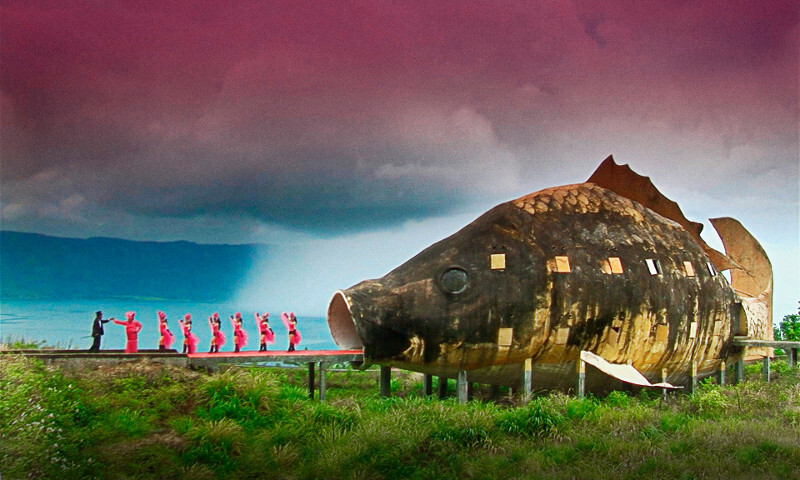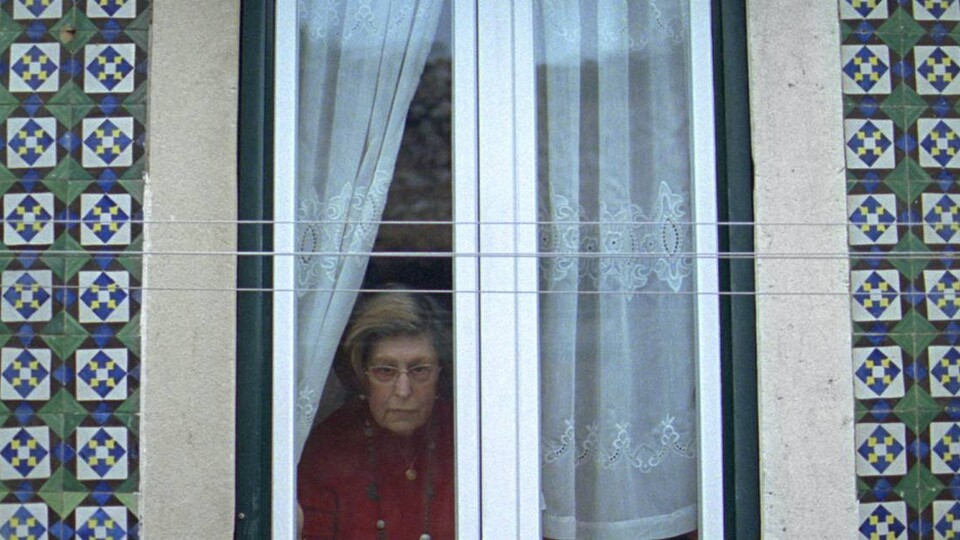Sport
Six films encompassing a wide variety of political and social topics, such as censorship and the role of social media in China, mass killings of communists in Indonesia, testing drugs on humans or the Czech “money-changer capitalism” has been premiered in the Czech Republic at the One World festival. What are their authors’ experiences from the shooting and how do they relate to the issues raised in their films?
The Act of Killing
But the killers were more than willing to help and, when we filmed them boastfully describing their crimes against humanity, we met no resistance whatsoever. All doors were open. Local police would offer to escort us to sites of mass killing, saluting or engaging the killers in jocular banter, depending on their relationship and the killer’s rank. Military officers would even task soldiers with keeping curious onlookers at a distance, so that our sound recording wouldn’t be disturbed.
This bizarre situation was my second starting point for making The Act of Killing. And the question in mind was this: what does it mean to live in, and be governed by, a regime whose power rests on the performance of mass murder and its boastful public recounting, even as it intimidates survivors into silence. Again, there seemed to be a profound failure of the imagination.
(Joshua Oppenheimer, www.theactofkilling.com)
Off Label
The craziest thing for me during the filming was volunteering my arm so that our character Andy (who was a young medic in Abu Ghraib and now suffers severe PTSD) could demonstrate how he tortured prisoners with large needles while treating them. The whole time we were filming, my mind was caught between the strangeness of Andy doing such a thing for the sake of a film, and the fact that he’d done this repeatedly, to the point of mental illness, for the supposed sake of country and freedom. I can’t think of any other career that creates such peculiar situations as documentary filmmaking.
(Donal Mosher, www.tribecafilm.com)
High Tech Low Life
Censorship in China, as well as many other countries including the United States, is a reality. The severity may vary from country to country, but one can safely say that all governments and powerful corporations dislike too much transparency. In the case of China, a modest amount of “bad” news stories may appear in state-monitored news reports in China, but never if it is critical of the central government or Chinese Communist Party. Additionally, anything deemed a threat to social stability is effectively censored from print, broadcast and official outlets. What has been remarkable about the emergence of social media in China is that it has helped redefine the media landscape and social consciousness from a top-down heirarchal world to one built around networks where certain kinds of critical information can be disseminated with great speed and exposure. In a number of cases, corrupt local government officials have even been revealed and fired due to overwhelming online public disapproval. Social media driven protests after events like the Wuzhou high-speed train crash and thousands of other cases suggest that public opinion cannot always be controlled.
(Stephen Maing, www.asiancinevision.org)
Putin's Kiss
I'm from Denmark, where democracy has been hammered into my head since school. But with people like Mosha, they never had the education on what is a democracy. She'd go out and do a political action with Nashi for instance, and then she'd cover it up as a journalist. So she wouldn't see the conflict [in her roles] between political activist and journalist. She didn't realize you shouldn't do that. But when she met Oleg and these liberal journalists, she started to realize what she was doing.
(Lise Birk Pedersen, www.indiewire.com)
The Machine which makes Everything Disappear
I’ve wanted to make movies since I was child. This decision was clear to me very early on. I even bet a friend 100 gumballs that I would be a film director one day. This kind of gumball was very expensive at that time, so I was risking a lot! But I won. Unfortunately they aren’t produced anymore. I started as a child by watching classic movies, even when I wasn’t allowed--in the middle of the night, with the room dark and the television muted.
This film was made in one breath, in a trance-like state by passionate people, all of us was on the border between dreaming and perfect concentration. The biggest challenge was staying with each protagonist a maximum of two or three days. I would become completely immersed in the most personal issues of their lives, and then we would have to go our separate ways. I became very close with these people, and had to find a way to show the truth of their stories while keeping in mind how showing this film around the world would impact their lives. I had to be very careful with my editing for this reason.
(Tinatin Gurchiani, www.indiewire.com)
Crooks
Although I had seen many product demonstrations, on the last occasion I could not control myself. Together with a senior man, who was well familiar with the rules of the presentations,I went to a demonstration in the village Slepotice near Pardubice. The dealer suddenly threw an envelope on the table in front of the senior, who refused to accept it, saying “I don’t want anything”. The usual humiliation immediately followed: “Sir, you are ungrateful, you will not get lunch, if you are not willing to offer anything to our company, you will be walking home.” The senior Jaroušek started trembling with fear because he was afraid he would not be able to get back to his remote village. The dealer was satisfied with this effect and told the poor senior to follow him out to the hall, where he started yelling at him. When they came back, he took him behind a screen and I was afraid he might force him to sign some bad deal. I rushed in there and said: “I don’t find your reaction appropriate, you can’t make this gentleman walk back home.” And the dealer retorted: “Calm down, miss, this is none of your business.” And then he started calling me ‘buddy’: “Go back to your seat and mind your own business, buddy.” I tried to protest that he could not talk to me like that. Then the dealer told Jaroušek to go back to his seat and it was my turn to be taken out to the hall. They know exactly how to scare people. They enter your personal space and from a distance of ten centimetres they yell whatever they like in your face. For example, he told me that I was nobody who had not achieved anything in her life. “Who do you think you are, you little girl, some kind of a star? What kinda show are you putting on here, buddy?” He was berating me for five minutes. I wanted to defend myself verbally but he was just yelling louder and louder.
(Silvie Dymáková, www.lidovky.cz)


